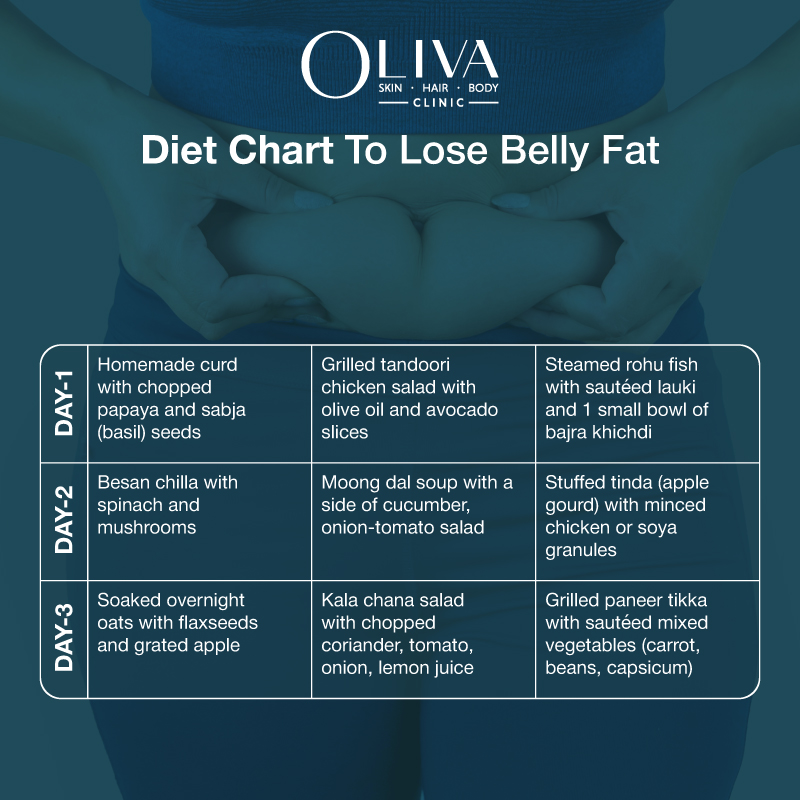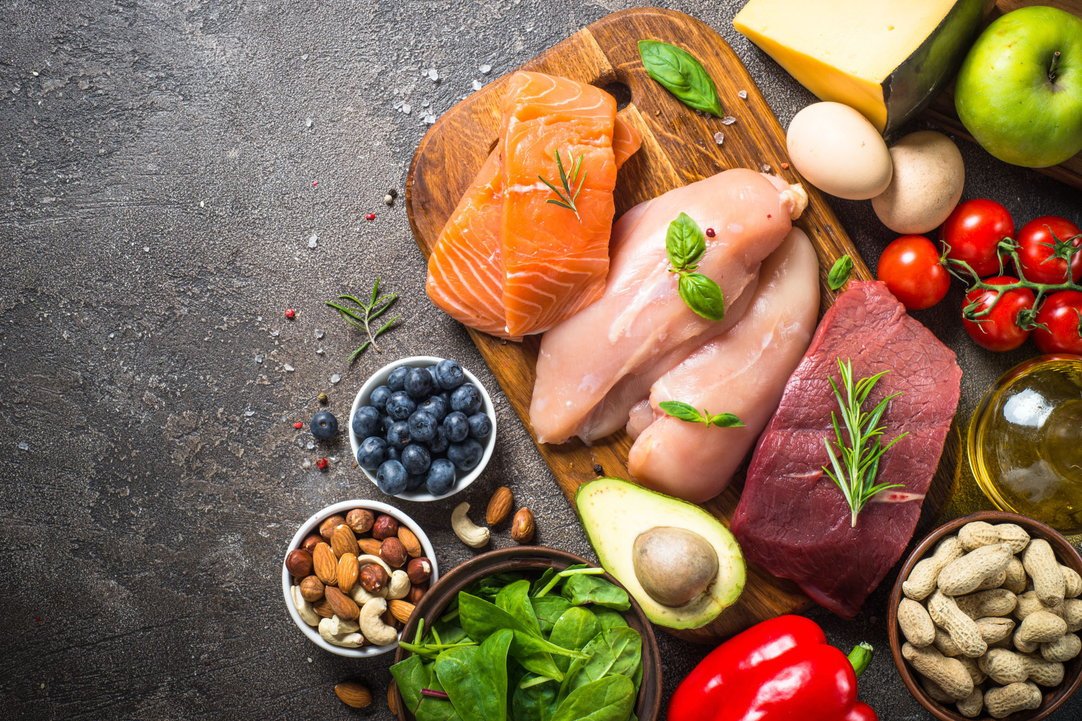Are you tired of trying diet after diet without seeing real results? Finding the best diet for weight loss can feel overwhelming with so much conflicting advice out there.
But what if the secret isn’t about following the latest trend, but discovering what truly works for your body and lifestyle? You’ll uncover simple, effective strategies that can help you shed pounds and keep them off. Keep reading to learn how to make weight loss easier and more sustainable—because you deserve a plan that fits you, not the other way around.

Popular Diets For Weight Loss
Many people want to lose weight by changing what they eat. Choosing the right diet can help reach weight loss goals.
This article explains some popular diets that people use to lose weight. Each diet has different rules and benefits.
Low-carb Diets
Low-carb diets limit foods with many carbohydrates. People eat more protein and fat instead.
This diet helps reduce hunger and lowers calorie intake. It can also improve blood sugar levels.
- Focus on meats, fish, eggs, and vegetables
- Avoid bread, pasta, and sugary snacks
- Helps control insulin and blood sugar
Mediterranean Diet
The Mediterranean diet is based on foods from countries near the Mediterranean Sea. It focuses on whole foods and healthy fats.
This diet supports heart health and weight loss by eating fruits, vegetables, nuts, and olive oil.
- Eat lots of fruits and vegetables
- Use olive oil as the main fat
- Include fish and whole grains
Plant-based Diets
Plant-based diets focus on foods from plants like fruits, vegetables, beans, and grains. Some people avoid all animal products.
This diet is rich in fiber and nutrients. It can help reduce calories and improve digestion.
- Eat mostly fruits, vegetables, and legumes
- Choose whole grains over refined grains
- Limit or avoid meat, dairy, and eggs
Intermittent Fasting
Intermittent fasting means cycling between eating and fasting times. People eat only during certain hours or days.
This method helps reduce total calories. It may also improve metabolism and support weight loss.
- Common types: 16/8 (fast 16 hours, eat 8 hours)
- Alternate-day fasting is another option
- Focus on healthy foods during eating periods
Ketogenic Diet
The ketogenic diet is very low in carbs and high in fat. It changes the body to burn fat for energy instead of carbs.
This diet can lead to quick weight loss and reduced hunger. It requires careful planning to follow safely.
- Eat high-fat foods like avocado, nuts, and oils
- Limit carbs to about 5-10% of daily calories
- Include moderate protein from meat and fish

Key Factors For Effective Weight Loss
Weight loss needs more than just eating less. It requires a balance of different factors.
Knowing these key factors helps you choose the best diet for your weight loss goals.
Calorie Deficit Importance
Eating fewer calories than your body uses causes weight loss. This is called a calorie deficit.
Without a calorie deficit, your body will not burn stored fat for energy.
- Track your daily calorie intake
- Reduce calories moderately to avoid hunger
- Combine diet with exercise for better results
Macronutrient Balance
Your diet should include the right balance of proteins, fats, and carbohydrates. Each macronutrient plays a role.
Protein helps build muscle and keeps you full. Healthy fats support your brain and hormones. Carbs give energy.
- Eat lean proteins like chicken, fish, or beans
- Include healthy fats like nuts and olive oil
- Choose whole grains and vegetables for carbs
Meal Timing And Frequency
When and how often you eat can affect hunger and energy levels. Find a meal schedule that suits you.
Some people do well with three meals a day. Others prefer smaller, more frequent meals to control hunger.
- Eat regular meals to keep energy steady
- Avoid skipping meals to prevent overeating later
- Listen to your body’s hunger signals
Hydration And Weight Loss
Drinking enough water helps your body burn fat and reduces hunger. Sometimes thirst feels like hunger.
Water supports digestion and helps remove waste from your body. Aim to drink water throughout the day.
- Drink a glass of water before meals
- Carry a water bottle to stay hydrated
- Aim for at least 8 cups of water daily
Personalizing Your Diet
Choosing the best diet for weight loss depends on your unique needs. Personalizing your diet helps you stick to it longer.
Everyone has different tastes, habits, and health needs. Tailoring your diet to fit your life makes weight loss easier.
Considering Lifestyle And Preferences
Your daily routine affects what diet works best. Choose foods you enjoy and can prepare easily.
Think about your work schedule, social life, and cooking skills. A diet that fits your lifestyle is easier to follow.
- Pick meals that suit your time and energy
- Include favorite healthy foods to enjoy eating
- Plan for social events and dining out
Addressing Medical Conditions
Some health problems need special diets. Talk to your doctor or dietitian before starting a new plan.
Conditions like diabetes or food allergies change what you can eat. Adjust your diet to stay safe and healthy.
- Check for foods that affect your condition
- Avoid diets that may cause health risks
- Include nutrients your body needs most
Incorporating Physical Activity
Exercise helps burn calories and supports weight loss. Match your diet to your activity level.
Active people may need more energy and protein. Less active people might need fewer calories to lose weight.
- Eat enough fuel for your workouts
- Balance protein, carbs, and fats for energy
- Adjust portions based on how much you move
Common Mistakes To Avoid
Choosing the best diet for weight loss can be confusing. Many people make mistakes that slow down their progress.
Avoid these common errors to stay on track and reach your goals more easily.
Overly Restrictive Diets
Cutting out too many foods can make your diet hard to follow. It may cause you to feel tired or weak.
Strict diets often lead to cravings and binge eating. Your body needs a balance of nutrients to stay healthy.
Ignoring Nutrient Quality
Focusing only on calories can hurt your health. Eating low-quality foods may leave you lacking important vitamins.
Choose whole foods like fruits, vegetables, and lean proteins. These support your weight loss and overall health.
- Avoid foods high in sugar and unhealthy fats
- Include fiber-rich foods to feel full longer
- Drink plenty of water each day
Neglecting Consistency
Skipping meals or changing diets often can confuse your body. Consistency helps your body adjust and lose weight.
Make small, healthy changes that you can keep. Sticking to your plan is more important than quick fixes.
Tips For Long-term Success
Finding the best diet for weight loss is only the first step. Keeping the weight off for a long time needs good habits. This guide shares tips to help you stay on track and reach your goals.
Long-term success comes from steady actions. Small changes can make a big difference over time. These tips will support you in your weight loss journey.
Setting Realistic Goals
Set clear and reachable goals for your weight loss. Avoid goals that are too hard or fast. Realistic goals keep you motivated and prevent burnout.
Focus on small changes like losing one pound per week. This pace is safe and easier to maintain. Celebrate small wins to stay encouraged.
- Aim for 1-2 pounds lost per week
- Set short-term and long-term goals
- Be flexible and adjust goals if needed
Tracking Progress
Keep track of your food, exercise, and weight. Tracking helps you see what works and what needs change. It also keeps you responsible for your actions.
Use a journal, app, or calendar to record your progress. Review your notes regularly to stay focused and motivated.
- Write down meals and snacks daily
- Log workouts and physical activity
- Weigh yourself once a week
- Note how you feel and energy levels
Building Sustainable Habits
Create habits that you can keep for life. Avoid quick fixes or extreme diets. Choose foods and activities you enjoy and can continue.
Focus on balance and variety. Small daily habits lead to big changes over time. Consistency is the key to lasting weight loss.
- Eat more vegetables and whole foods
- Include regular physical activity
- Drink plenty of water
- Get enough sleep each night
- Limit sugary and processed foods
Seeking Professional Support
Talk to a dietitian or doctor for advice. Professionals can help design a plan that fits your needs. They can also spot health issues that affect weight loss.
Support groups and coaches offer motivation and guidance. Sharing your journey with others makes it easier to stay committed.
- Consult a registered dietitian
- Visit your doctor for check-ups
- Join weight loss support groups
- Consider a personal trainer or coach

Frequently Asked Questions
What Diet Is Best For Quick Weight Loss?
A balanced diet with reduced calories and high protein aids quick weight loss. Include vegetables, lean meats, and whole grains. Avoid processed foods and sugary drinks for better results.
Can Intermittent Fasting Help With Weight Loss?
Yes, intermittent fasting can boost weight loss by limiting eating windows. It reduces calorie intake and improves metabolism. However, consistency and healthy food choices remain essential.
How Important Is Calorie Counting In Weight Loss?
Calorie counting helps monitor intake and ensures a calorie deficit. It supports mindful eating and weight management. Combine it with physical activity for effective weight loss.
Does Low-carb Diet Work For Weight Loss?
Low-carb diets reduce insulin levels, leading to fat loss. They promote satiety and reduce hunger. Effectiveness varies, so choose a sustainable plan based on your needs.
Conclusion
Finding the best diet for weight loss needs patience and effort. Different plans work for different people. Pay attention to your body’s needs. Choose a diet you can stick with long-term. Balance is key. Healthy eating includes fruits, veggies, and lean proteins.
Avoiding processed foods helps too. Regular exercise can enhance results. Staying hydrated is important. Consult a health professional for personalized advice. Remember, small changes lead to big results. Stay motivated and positive. Your journey is unique and worth it.



